My 9 Rules for Picking Mutual Funds
Selecting winning funds means focusing on the right numbers. Expenses and long-term risk-adjusted returns are the most important.

Profit and prosper with the best of Kiplinger's advice on investing, taxes, retirement, personal finance and much more. Delivered daily. Enter your email in the box and click Sign Me Up.
You are now subscribed
Your newsletter sign-up was successful
Want to add more newsletters?

Delivered daily
Kiplinger Today
Profit and prosper with the best of Kiplinger's advice on investing, taxes, retirement, personal finance and much more delivered daily. Smart money moves start here.

Sent five days a week
Kiplinger A Step Ahead
Get practical help to make better financial decisions in your everyday life, from spending to savings on top deals.

Delivered daily
Kiplinger Closing Bell
Get today's biggest financial and investing headlines delivered to your inbox every day the U.S. stock market is open.

Sent twice a week
Kiplinger Adviser Intel
Financial pros across the country share best practices and fresh tactics to preserve and grow your wealth.

Delivered weekly
Kiplinger Tax Tips
Trim your federal and state tax bills with practical tax-planning and tax-cutting strategies.

Sent twice a week
Kiplinger Retirement Tips
Your twice-a-week guide to planning and enjoying a financially secure and richly rewarding retirement

Sent bimonthly.
Kiplinger Adviser Angle
Insights for advisers, wealth managers and other financial professionals.

Sent twice a week
Kiplinger Investing Weekly
Your twice-a-week roundup of promising stocks, funds, companies and industries you should consider, ones you should avoid, and why.

Sent weekly for six weeks
Kiplinger Invest for Retirement
Your step-by-step six-part series on how to invest for retirement, from devising a successful strategy to exactly which investments to choose.
The sad truth is that roughly two-thirds of all actively managed mutual funds fail to beat their benchmark indexes. Most people are better off sticking with low-cost index funds. If you want to invest in actively managed funds, you need to devote time to picking good funds.
What follows are my nine rules for success.
1. Ignore short-term performance.
Returns over a quarter, a year or even two years are meaningless noise, at best. Almost all funds go through hot spells and cold spells. Buying a fund after it has been hot is often a recipe for disaster. Selling a good fund after a couple of bad years is usually folly, too. “You can’t judge an investor from what they’ve done over six months or a year,” says Warren Buffett. He plans to make public returns from Berkshire’s newly hired money manager, Todd Combs, just every five years.
From just $107.88 $24.99 for Kiplinger Personal Finance
Become a smarter, better informed investor. Subscribe from just $107.88 $24.99, plus get up to 4 Special Issues

Sign up for Kiplinger’s Free Newsletters
Profit and prosper with the best of expert advice on investing, taxes, retirement, personal finance and more - straight to your e-mail.
Profit and prosper with the best of expert advice - straight to your e-mail.
2. Focus on expenses.
Lower-cost funds beat higher-cost funds over extended periods. The average domestic stock fund with an expense ratio in the cheapest 20% among such funds had a 59% chance of outperforming its index over the five years that ended in 2010, Morningstar reports. Indeed, costs were the best predictor of future returns in a recent Morningstar study. Simply picking low-cost funds almost doubles your chances of beating an index.
3. Corporate culture matters.
There’s more than meets the eye to a fund’s expense ratio. It often tells you what kind of company you’re investing with. Are you investing with a greedy financial-services firm, eager to peddle you whatever is in vogue this season? Or are you buying from a company that views you as a long-term client? The second variety tends to charge less.
The way a fund firm treats you, the investor, typically mirrors how it treats its employees. Remember, even halfway competent money managers can find high-paying work elsewhere if the company they’re working for mistreats them.
The best fund firms -- such as Dodge & Cox, T. Rowe Price and Vanguard, all of which sell no-load funds directly to customers, and the broker-sold American funds -- can hire managers from among the cream of the crop because the companies treat their people well. They also charge low fees.
4. Study risk-adjusted returns.
I wrote a piece on the importance of volatility in February (see VALUE ADDED: Consider a Fund’s Volatility -- or Risk Paying a High Price). When assessing a fund’s record, you need to look not only at long-term total returns but also at a fund’s volatility. You can do this by simply eyeballing a fund’s standard deviation and its total return numbers.
Or you can use one of the numerous measures of risk-adjusted returns. There are subtle differences between the Sharpe ratio, alpha, the Morningstar star system, the information ratio and the Sortino ratio. Google them if you want to learn more. But for my money, they’re all good measures of the returns a fund generates relative to the risks that it takes. Almost all are available at Morningstar.com.
These measures make little sense in a vacuum. Use them to compare funds you’re considering. The higher the number, the better the fund has done. I, personally, examine all of them, as well as upside/downside capture ratios, which show how a fund performs in both up markets and down markets.
The Morningstar star system is the target of lots of bad press. Almost all of it is based on ancient history -- before Morningstar began to separate funds by category in assigning star rankings in 2002. Morningstar’s new study found that domestic stock funds that earned five stars as of 2005 had a 55% chance of beating their index over the next five years.
What’s more, combining low expense ratios with five-star rankings worked better than either measure in isolation. Five-star domestic stock funds with expense ratios in the bottom 20% of their category beat their index 66% of the time. Foreign stock funds with both attributes beat their benchmark 53% of the time, taxable bond funds 79%, and municipal bond funds 71%. These findings are fascinating. Simply by investing in low-cost funds with good risk-adjusted returns, you tilt the odds of finding an index-beating fund in your favor.
5. Consider long-term returns under the current manager.
The higher, the better. When a manager at a small shop leaves, the fund’s record becomes virtually meaningless. That’s not the case at firms such as the American funds, Dodge & Cox, and T. Rowe Price, where managers tend to stay for long periods and where grooming eventual successors is part of the job.
Vanguard outsources management for almost all of its actively run funds, so watch out when Vanguard fires a management team. By the same token, when a superior management team leaves a firm, you should considering following it. Jeffrey Gundlach seems to have taken most of TCW’s best bond analysts when TCW fired him and put them to work at his new DoubleLine Total Return (DBLTX), a superb choice for investing in mortgage securities (and a member of the Kiplinger 25).
Morningstar looked at domestic stock funds that had at least one manager who had been in place for a minimum of five years. Such a manager with a record in the top 20% was 43% more likely to beat the index than a fund with a middling record. And that top-tier manager was nearly twice as likely to beat his fund’s index than a fund with a record in the bottom 20%.
6. Watch for asset bloat.
I’m not as concerned about growth in assets at funds as some other fund analysts. But if you’re considering a small-company fund, be aware of a surge in assets under management. It’s a negative. Also, make sure your fund hasn’t made its record in small-capitalization stocks only to morph into a large-cap fund after assets surged.
7. There are exceptions to every rule.
I think Pimco funds charge too much. I wish they’d lower expenses -- especially in an era when bond funds are likely to offer puny returns. But I’m not going to pass up the first-class funds, such as Pimco Unconstrained Bond D (PUBDX) and Pimco Emerging Local Bond D (PLBDX).
8. Sometimes an index fund really is the best choice.
No matter how hard you work at it, you may determine that the best bet is to invest in a Vanguard index fund, particularly in taxable accounts. For instance, I can’t find a single open, no-load emerging-markets stock fund that looks more attractive than Vanguard MSCI Emerging Markets ETF (VWO), an exchange-traded fund.
9. The numbers don’t tell you everything.
Get to know the managers of the funds you like. Read their missives to shareholders and media reports about them. Look for clear-thinking managers who have a passion for investing and a disciplined investing methodology.
Steven T. Goldberg (bio) is an investment adviser in the Washington, D.C. area.
Profit and prosper with the best of Kiplinger's advice on investing, taxes, retirement, personal finance and much more. Delivered daily. Enter your email in the box and click Sign Me Up.

-
 How Much It Costs to Host a Super Bowl Party in 2026
How Much It Costs to Host a Super Bowl Party in 2026Hosting a Super Bowl party in 2026 could cost you. Here's a breakdown of food, drink and entertainment costs — plus ways to save.
-
 3 Reasons to Use a 5-Year CD As You Approach Retirement
3 Reasons to Use a 5-Year CD As You Approach RetirementA five-year CD can help you reach other milestones as you approach retirement.
-
 Your Adult Kids Are Doing Fine. Is It Time To Spend Some of Their Inheritance?
Your Adult Kids Are Doing Fine. Is It Time To Spend Some of Their Inheritance?If your kids are successful, do they need an inheritance? Ask yourself these four questions before passing down another dollar.
-
 Best Mutual Funds to Invest In for 2026
Best Mutual Funds to Invest In for 2026The best mutual funds will capitalize on new trends expected to emerge in the new year, all while offering low costs and solid management.
-
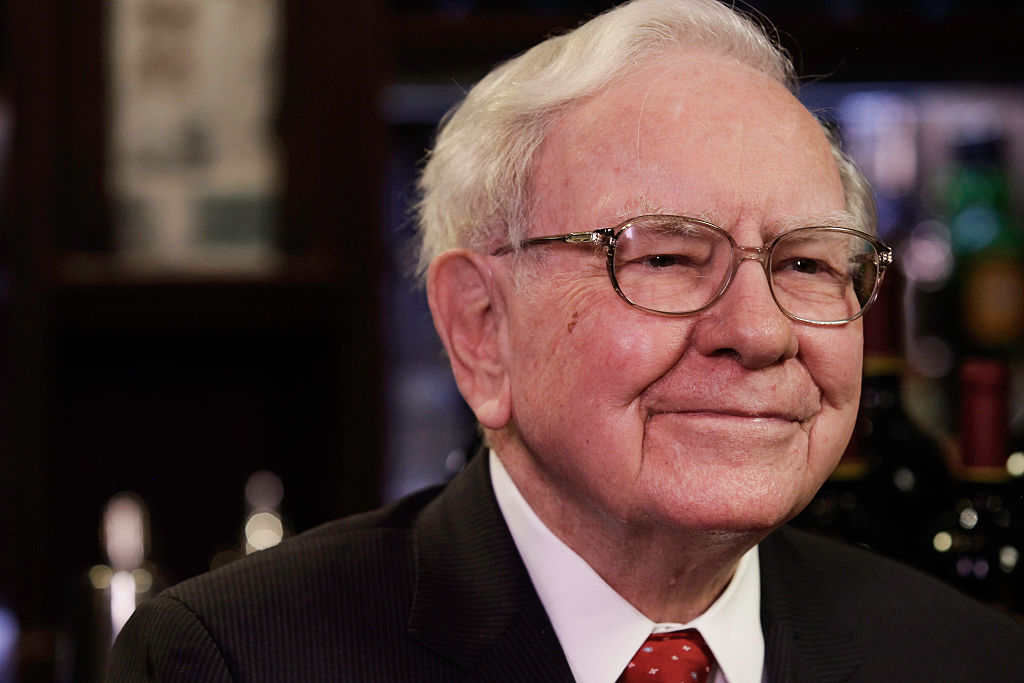 What Made Warren Buffett's Career So Remarkable
What Made Warren Buffett's Career So RemarkableWhat made the ‘Oracle of Omaha’ great, and who could be next as king or queen of investing?
-
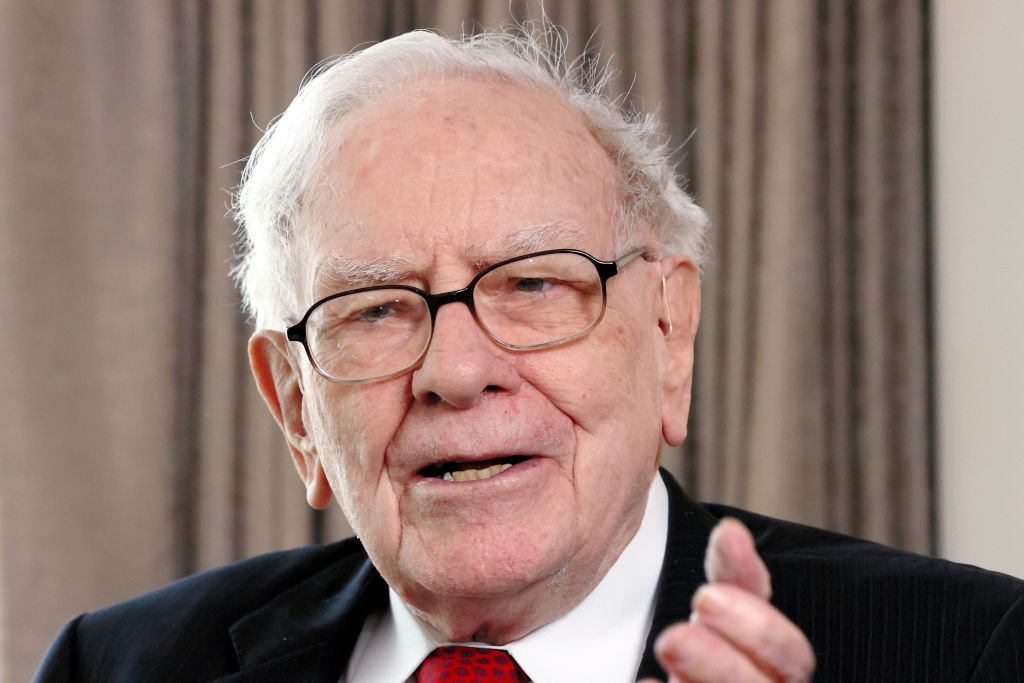 With Buffett Retiring, Should You Invest in a Berkshire Copycat?
With Buffett Retiring, Should You Invest in a Berkshire Copycat?Warren Buffett will step down at the end of this year. Should you explore one of a handful of Berkshire Hathaway clones or copycat funds?
-
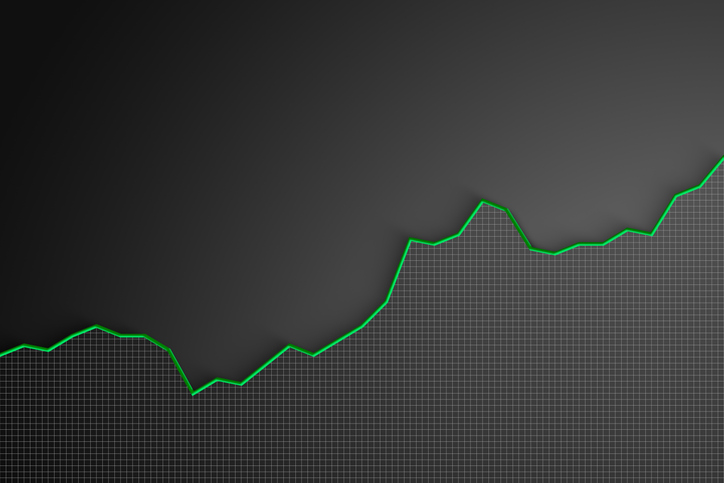 Stocks at New Highs as Shutdown Drags On: Stock Market Today
Stocks at New Highs as Shutdown Drags On: Stock Market TodayThe Nasdaq Composite, S&P 500 and Dow Jones Industrial Average all notched new record closes Thursday as tech stocks gained.
-
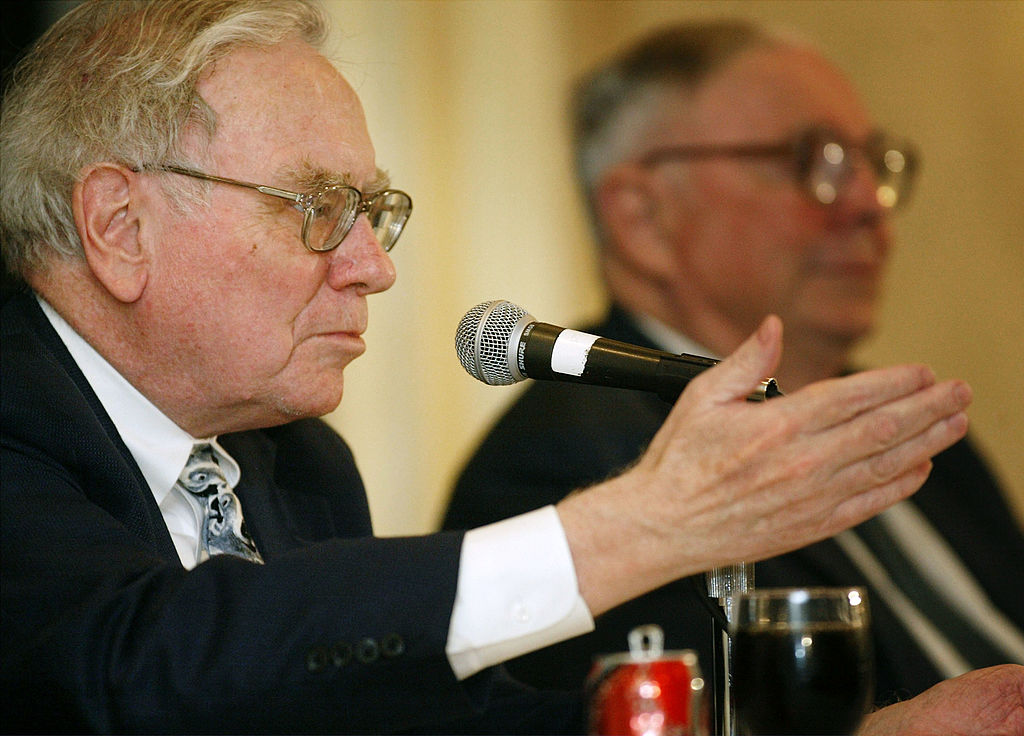 9 Warren Buffett Quotes for Investors to Live By
9 Warren Buffett Quotes for Investors to Live ByWarren Buffett transformed Berkshire Hathaway from a struggling textile firm to a sprawling conglomerate and investment vehicle. Here's how he did it.
-
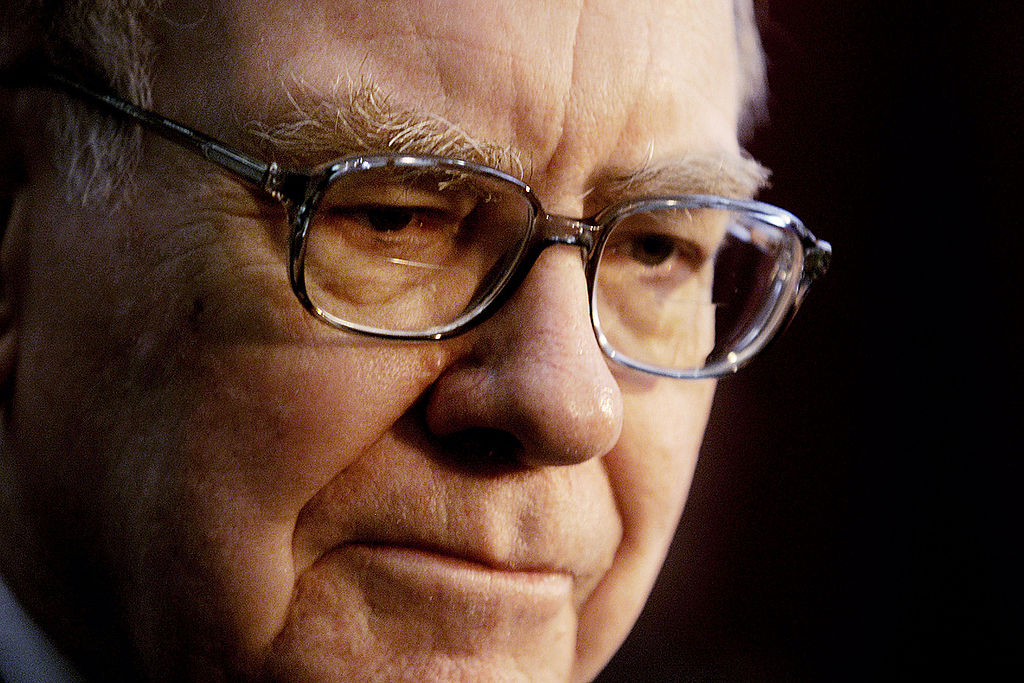 A Timeline of Warren Buffett's Life and Berkshire Hathaway
A Timeline of Warren Buffett's Life and Berkshire HathawayBuffett was the face of Berkshire Hathaway for 60 years. Here's a timeline of how he built the sprawling holding company and its outperforming equity portfolio.
-
 Berkshire Buys the Dip on UnitedHealth Group Stock. Should You?
Berkshire Buys the Dip on UnitedHealth Group Stock. Should You?Buffett & Co. picked up UnitedHealth stock on the cheap, with the embattled blue chip one of the newest holdings in the Berkshire Hathaway equity portfolio.
-
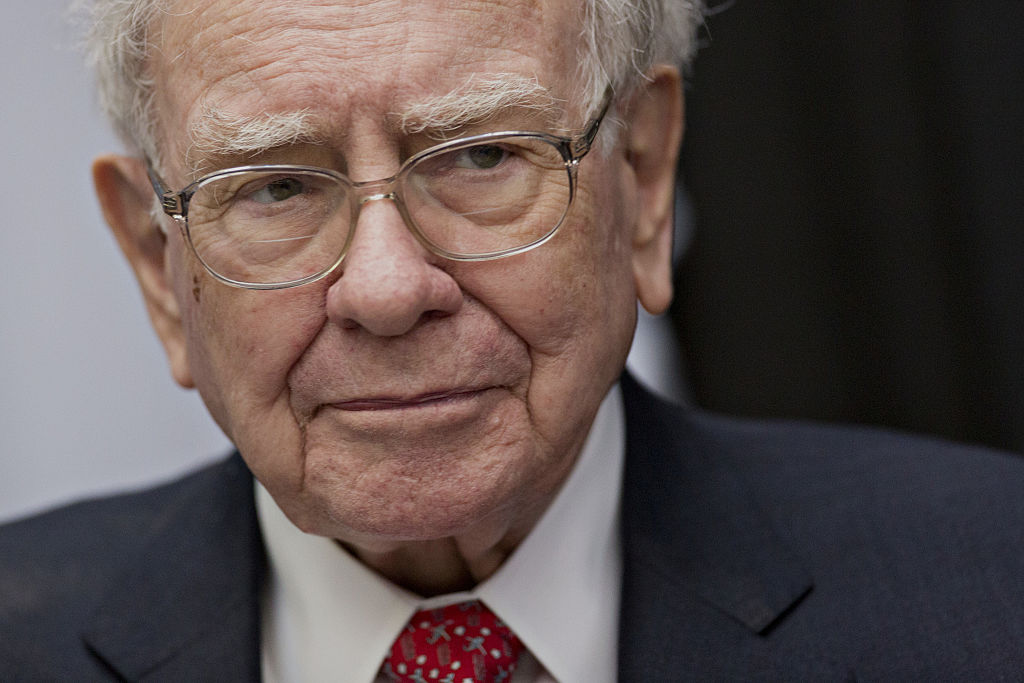 What Set Warren Buffett Apart
What Set Warren Buffett ApartAs Warren Buffett prepares for retirement, we reflect on what we've learned from his 60 years of leadership at Berkshire Hathaway.